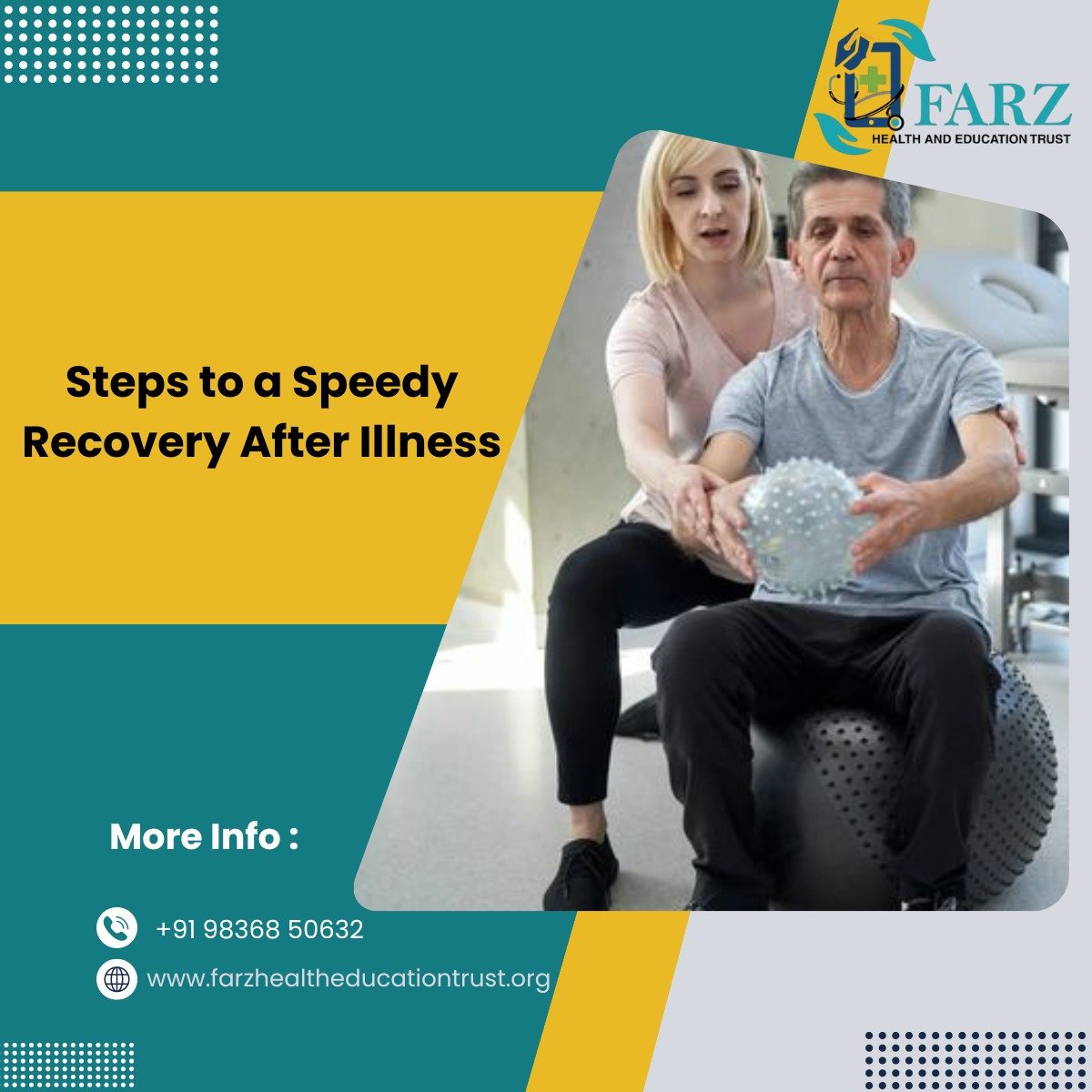
Recovering from an illness can often feel like a slow and exhausting journey. However, by following some essential steps, you can speed up your recovery process and regain your strength. Whether you’ve experienced a common cold, flu, or any other illness, taking the right actions can make a significant difference in how quickly you bounce back. Below are some practical tips to help you on your path to a speedy recovery.
-
Get Plenty of Rest
First and foremost, rest is crucial. When you’re ill, your body uses a lot of energy to fight off the infection. By resting, you allow your body to focus on healing rather than expending energy on physical activities. Ensure you’re getting enough sleep each night, and if possible, take short naps during the day. Resting not only conserves your energy but also helps your immune system function more effectively.
-
Stay Hydrated
Staying hydrated is essential for recovery. Water helps to flush out toxins from your body, and it plays a key role in every bodily function. When you’re ill, dehydration can worsen your symptoms, so it’s important to drink plenty of fluids. In addition to water, consider drinking herbal teas and broths, which can be soothing and provide additional nutrients.
-
Eat Nutritious Foods
Nutrition is a cornerstone of recovery. Your body needs vitamins, minerals, and other nutrients to repair itself and boost the immune system. Focus on eating a balanced diet rich in fruits, vegetables, whole grains, and lean proteins. Foods high in vitamin C, like oranges and bell peppers, can support your immune system, while proteins help repair tissues. Avoid processed foods, as they can be harder for your body to digest and provide little nutritional value.
Learn more about A Day in the Life of Our Home Care Services
-
Follow Your Doctor’s Advice
Always follow the advice given by your healthcare provider. Whether you’ve been prescribed medications, advised to rest, or given specific dietary guidelines, adhering to your doctor’s recommendations is key to a quick recovery. If you’ve been prescribed antibiotics or other medications, it’s important to complete the entire course, even if you start feeling better before finishing them. This ensures that the infection is fully eradicated.
-
Gradually Return to Physical Activity
While rest is important, staying inactive for too long can lead to muscle weakness and fatigue. Once you start feeling better, gradually reintroduce light physical activity into your routine. Begin with gentle exercises, such as walking or stretching. Exercise can improve circulation and boost your mood, but it’s crucial not to overexert yourself. Listen to your body and increase your activity level gradually.
-
Stay Positive
A positive mindset can greatly impact your recovery. Studies have shown that stress and negative emotions can weaken the immune system, making it harder to recover. Engage in activities that uplift your spirits, whether it’s reading a book, listening to music, or practicing mindfulness. Surround yourself with supportive people who encourage your healing process.
-
Monitor Your Symptoms
Keep track of your symptoms during recovery. While most illnesses improve over time, some may require additional medical attention if symptoms persist or worsen. If you notice any unusual symptoms or if your condition doesn’t improve after a few days, it’s important to consult your healthcare provider. Early detection of complications can prevent more serious health issues.
-
Practice Good Hygiene
To prevent reinfection or spreading illness to others, practicing good hygiene is essential. Wash your hands regularly with soap and water, especially after coughing, sneezing, or touching your face. Avoid close contact with others until you’re fully recovered, and consider disinfecting commonly touched surfaces in your home. Good hygiene not only protects you but also those around you.
-
Consider Supplements
In some cases, supplements may be recommended to aid in recovery. For instance, zinc and vitamin C are known to boost the immune system and can be particularly beneficial during illness. However, it’s important to consult with your healthcare provider before starting any new supplements, as they can interact with medications or cause unwanted side effects.
-
Avoid Stress
Lastly, reducing stress is vital for a quick recovery. Stress can impair your immune system, making it harder for your body to heal. Practice relaxation techniques such as deep breathing, meditation, or yoga to help manage stress levels. Additionally, ensure you’re getting enough sleep and maintaining a healthy diet, as these factors also contribute to lower stress.
In conclusion, recovering from illness requires a holistic approach. By resting, staying hydrated, eating nutritious foods, and following your doctor’s advice, you can support your body’s healing process. Additionally, a positive mindset, good hygiene practices, and gradual physical activity will further aid in your recovery. Remember, your body needs time to heal, so be patient and give yourself the care you deserve.
